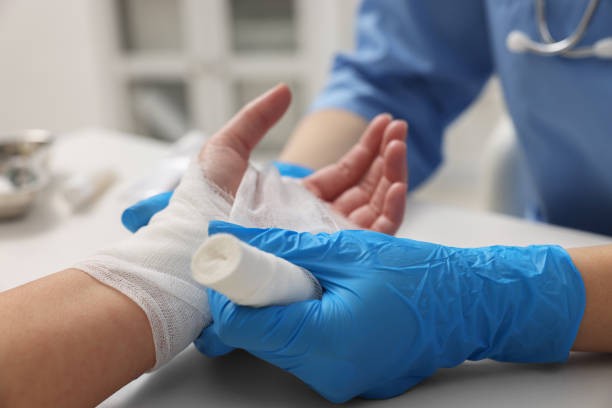Coping with Emotional Challenges After a Personal Injury

Getting hurt in an accident can change your life in many ways. You might have pain, medical bills, and worries about missing work. But what many people don’t realize is that the emotional side of a personal injury can be just as hard as the physical pain.
After an accident, people often deal with fear, sadness, or even anger. These feelings are part of the healing process, and they can take time to fade. There are multiple types of pain and suffering that come with personal injuries, not just broken bones or bruises, but also emotional scars that can stay long after the body heals.
Let’s talk about the emotional challenges that often come after a personal injury and what you can do to cope with them in a healthy and positive way.
1. Understanding the Emotional Impact of an Injury
When you get injured, your mind goes through shock, stress, and fear. It’s normal to feel anxious or worried about your recovery, your job, or your future. Some people may also experience guilt, especially if others were involved in the accident. You may replay the event in your head and wish things had gone differently.
These feelings are normal, but they can become overwhelming if ignored. Many accident victims also face post-traumatic stress, which can cause nightmares, flashbacks, or fear of driving or going outside. It’s important to recognize that emotional healing is just as important as physical healing.
2. Common Emotional Challenges After an Injury
Here are some of the most common emotional struggles people face after an accident:
- Anxiety: Worrying about your health, finances, or how long recovery will take.
- Depression: Feeling hopeless or sad because life doesn’t feel the same.
- Anger or frustration: Being upset about the accident or the pain you’re in.
- Fear: Feeling scared to drive again or return to the place where the injury happened.
- Loneliness: Missing social activities or feeling isolated during recovery.
Understanding these emotions helps you realize that you’re not alone—many people go through the same things after an injury.
3. Healthy Ways to Cope
a. Talk About Your Feelings
Sharing your thoughts can make a big difference. Talk to friends, family, or a counselor about how you feel. Sometimes, just saying your worries out loud helps you feel lighter.
b. Stay Active (When You Can)
If your doctor allows, do light exercises or short walks. Physical activity helps your body and also boosts your mood by releasing feel-good hormones.
c. Keep a Routine
Accidents can make life feel out of control. Keeping a simple daily routine—like waking up, eating, and resting at the same times—helps you feel more stable and organized.
d. Practice Relaxation Techniques
Deep breathing, meditation, or listening to calming music can help reduce stress and anxiety. Even just a few minutes a day can help you relax.
e. Seek Professional Help
If sadness or anxiety lasts too long, consider talking to a therapist. They can help you manage emotions and teach you ways to feel better.
f. Stay Connected
Don’t isolate yourself. Call friends, join support groups, or talk to others who have gone through similar situations. You’ll feel stronger knowing others understand your pain.
4. The Role of Support in Healing
Having supportive people around you makes recovery easier. Friends and family can help with chores, appointments, or just by listening. Emotional support gives you strength and reminds you that you’re not alone in this journey.
Also, some people find comfort in joining online or local support groups for accident victims. Talking to others who’ve been through similar experiences can give you hope and motivation.
5. Give Yourself Time
Emotional recovery doesn’t happen overnight. Healing takes time, and it’s okay to have good days and bad days. Be patient with yourself and celebrate small improvements. Every step forward, no matter how small, is a sign of progress.
Summary
- Personal injuries cause both physical and emotional pain.
- There are multiple types of pain and suffering, including anxiety, depression, and fear.
- Common emotional struggles include sadness, frustration, and loneliness.
- Talking about your feelings and keeping a routine can help you cope.
- Exercise, relaxation, and support from loved ones make healing easier.
- Professional counseling can guide you through tough emotions.
- Emotional healing takes time, so be kind and patient with yourself.
